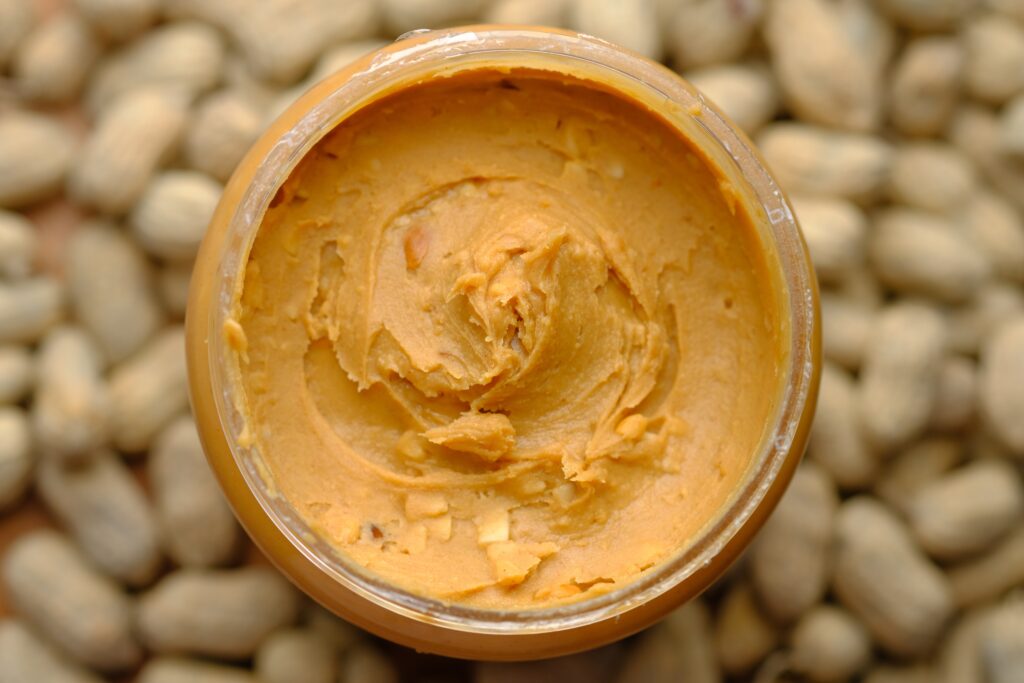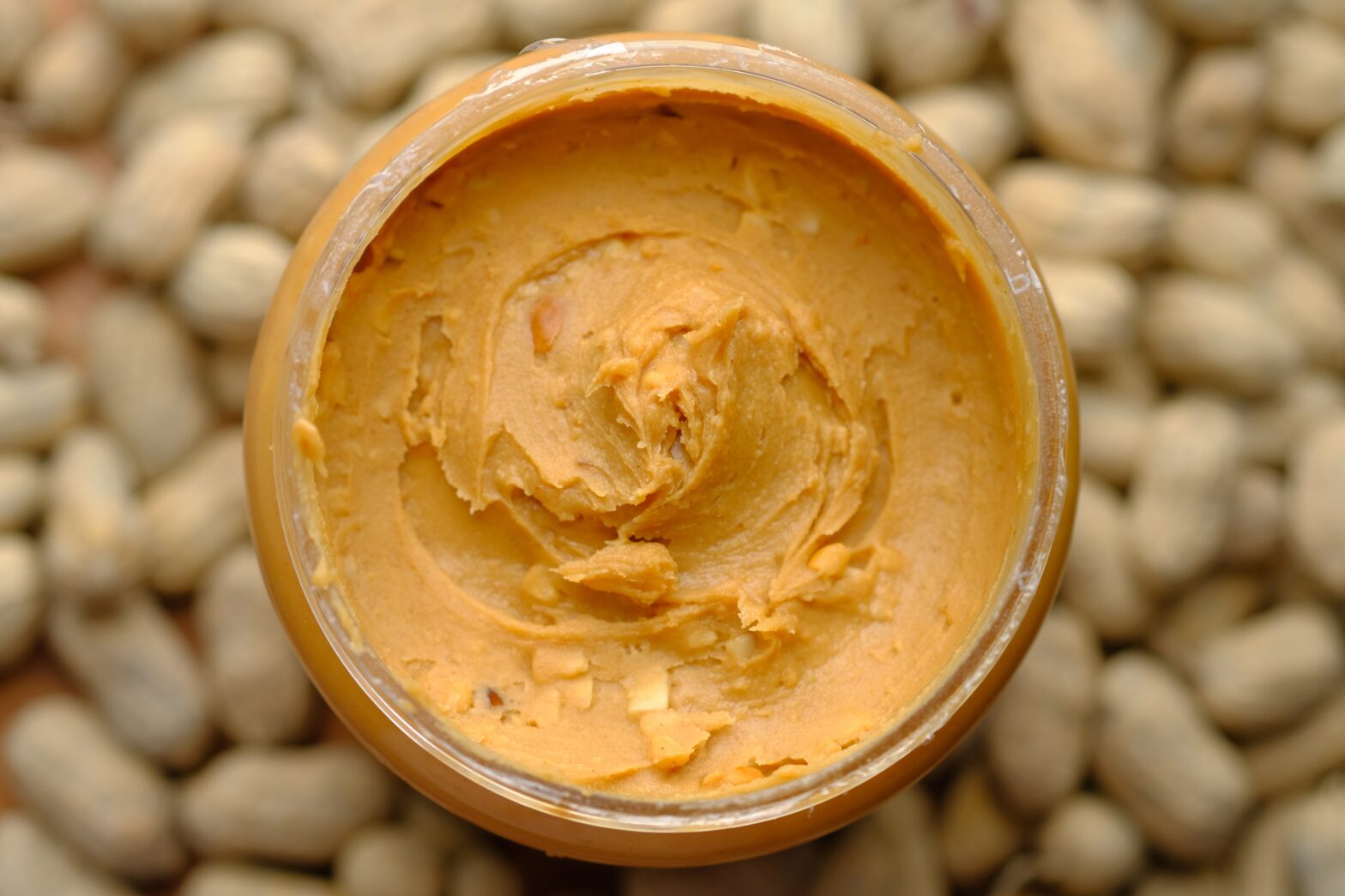Peanut butter has long been a beloved staple in many households, and with good reason. This article examines the numerous health benefits of incorporating peanut butter into one’s diet. Packed with essential vitamins and minerals, such as vitamin E, vitamin B6, magnesium, iron, and selenium, peanut butter provides a nutritious boost. Additionally, its high protein content makes it an excellent choice for those looking to increase their plant-based protein intake. Furthermore, the healthy fats found in peanut butter can support heart health and help to satiate hunger while aiding in the building and repair of muscles. While it is important to consume peanut butter in moderation due to its high-calorie content, its potential for reducing the risk of chronic diseases such as heart disease and type 2 diabetes, improving gut health, and promoting skin, hair, and bone health makes it a beneficial addition to any diet.
Nutritional Benefits of Peanut Butter
Peanut butter is a popular and versatile food that can offer a range of nutritional benefits. Whether enjoyed on toast or as a key ingredient in recipes, peanut butter provides essential vitamins and minerals, plant-based protein, and healthy fats. In this article, we will explore the potential health benefits of consuming peanut butter, as well as any concerns or risks that may be associated with it. Additionally, we will discuss how to choose the healthiest options and incorporate peanut butter into a balanced diet.

Vitamins and Minerals
Peanut butter is rich in vitamins and minerals that are essential for maintaining overall health. It contains significant amounts of vitamin E, which is an antioxidant that helps protect the body’s cells from damage. Additionally, peanut butter is a good source of vitamin B6, which plays a crucial role in brain development and function. Other nutrients found in peanut butter include magnesium, iron, and selenium, all of which contribute to various bodily functions.
Plant-based Protein
For individuals following a plant-based or vegetarian diet, peanut butter can be a valuable source of protein. With approximately 8 grams of protein per 2 tablespoons, it can provide a significant portion of the daily protein requirement. Protein is essential for building and repairing muscles, as well as supporting the production of enzymes and hormones.

Healthy Fats
Contrary to popular belief, not all fats are detrimental to health. Peanut butter contains healthy unsaturated fats, including monounsaturated fats and polyunsaturated fats. These fats have been shown to support heart health by reducing “bad” LDL cholesterol levels and lowering the risk of heart disease. Incorporating moderate amounts of peanut butter into a balanced diet can help promote a healthy lipid profile.
Potential Health Benefits
Beyond its nutritional composition, consuming peanut butter may offer a range of potential health benefits. Let’s explore some of these benefits in detail:
Satiates Hunger
The combination of protein, healthy fats, and fiber found in peanut butter can help increase feelings of fullness and reduce overall food intake. This can be particularly beneficial for individuals looking to manage their weight or avoid excessive snacking between meals.
Builds and Repairs Muscles
Peanut butter’s protein content makes it an excellent option for those looking to promote muscle growth and repair. Protein is vital for repairing muscle tissue after exercise, and consuming peanut butter after a workout can aid in recovery and help maintain muscle mass.
Reduces the Risk of Chronic Diseases
Regular consumption of peanut butter has been associated with a lower risk of chronic diseases such as heart disease and type 2 diabetes. The monounsaturated fats and antioxidants present in peanut butter have been shown to have protective effects on cardiovascular health and help regulate blood sugar levels.
Improves Gut Health
The fiber content in peanut butter can aid in promoting a healthy digestive system. Fiber acts as a prebiotic, providing nourishment for beneficial gut bacteria and supporting optimal gut health. A healthy gut microbiome is essential for proper digestion and overall well-being.
Promotes Skin and Hair Health
The vitamins and minerals present in peanut butter contribute to healthy skin and hair. Vitamin E, in particular, is known for its role in maintaining skin health by protecting against damage from free radicals and promoting elasticity. Additionally, the healthy fats found in peanut butter can help nourish the hair and keep it shiny and strong.
Supports Bone Health
Peanut butter contains several nutrients, including magnesium, that contribute to maintaining strong and healthy bones. Magnesium is involved in bone formation and plays a crucial role in maintaining bone density. Regular consumption of peanut butter can help support bone health and reduce the risk of conditions such as osteoporosis.
May Help with Premenstrual Syndrome
Some research suggests that the vitamin B6 found in peanut butter may help alleviate symptoms associated with premenstrual syndrome (PMS). Vitamin B6 has been shown to regulate mood and reduce symptoms such as bloating, irritability, and fatigue commonly experienced during the menstrual cycle.
Aids in Sleep
Peanut butter contains the amino acid tryptophan, which is involved in the production of serotonin and melatonin, neurotransmitters that promote relaxation and sleep. Incorporating a small serving of peanut butter into an evening snack can help support a good night’s sleep.

Concerns and Risks
While peanut butter offers many nutritional benefits, it is essential to be aware of certain concerns and risks associated with its consumption. These factors include:
High Calorie Content
One downside to peanut butter is its relatively high calorie content. Just two tablespoons of peanut butter can amount to around 180-200 calories, depending on the brand and variety. For individuals watching their caloric intake, it is important to consume peanut butter in moderation and consider portion sizes.
Aflatoxins in Unprocessed Peanut Butter
Aflatoxins are toxic substances produced by certain molds that can grow on peanuts. These toxins can be present in unprocessed or minimally processed peanut butter. To mitigate this risk, it is advisable to choose commercially produced peanut butter that has undergone rigorous testing for aflatoxin contamination.
Peanut Allergies
Peanut allergies are a common concern associated with the consumption of peanut butter. Persons with a peanut allergy may experience severe allergic reactions, ranging from mild symptoms such as itchiness and hives to more severe reactions such as difficulty breathing or anaphylaxis. It is important for those with peanut allergies and their caregivers to avoid peanut butter and products containing peanuts altogether.
Choosing the Healthiest Option
To ensure the healthiest choice, it is advisable to select peanut butter brands that contain only peanuts and salt. These brands often advertise themselves as “natural” or “organic.” Avoiding peanut butter brands that contain added sugars, hydrogenated oils, or artificial additives can help maximize the potential nutritional benefits of peanut butter.
Making Peanut Butter at Home
For individuals who prefer to have more control over the ingredients in their peanut butter, making it at home is a viable option. Homemade peanut butter allows for customization, enabling the addition of natural sweeteners or alternative nut varieties. By using high-quality peanuts and a food processor, it is possible to create a delicious and nutritious homemade peanut butter that suits personal preferences.
Incorporating Peanut Butter into Your Diet
There are numerous ways to incorporate peanut butter into a balanced diet, including:
Peanut Butter Sandwiches
Classic peanut butter sandwiches are a convenient and delicious way to enjoy this nutritious spread. Opting for whole-grain bread and adding slices of banana or a drizzle of honey can further enhance the taste and nutritional profile of the sandwich.
Peanut Butter Smoothies
Adding a spoonful of peanut butter to your favorite smoothie recipe can provide a creamy texture and enhance the flavor. Combined with fruits, vegetables, and a source of protein, peanut butter can transform a simple smoothie into a balanced meal or snack.
Peanut Butter as a Dip
Peanut butter makes an excellent dip for fresh fruits or vegetables. Apples, celery, and carrots are particularly well-suited to pair with peanut butter, offering a satisfying combination of flavors and textures.
Peanut Butter in Baking and Cooking
Peanut butter can be an exciting addition to baked goods and savory recipes alike. From cookies and brownies to stir-fries and sauces, the unique taste and texture of peanut butter can elevate a wide range of dishes.
In conclusion, peanut butter can be a nutritious and versatile addition to a balanced diet. It offers essential vitamins and minerals, plant-based protein, and healthy fats that support overall health and well-being. However, it is crucial to consume peanut butter in moderation due to its high calorie content. Additionally, individuals with peanut allergies should avoid it entirely. By choosing the healthiest options and incorporating peanut butter into meals and snacks, individuals can enjoy the many potential benefits this popular spread has to offer.
